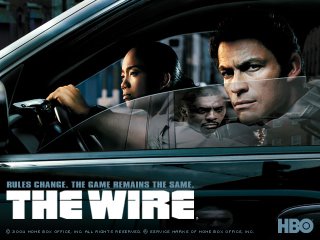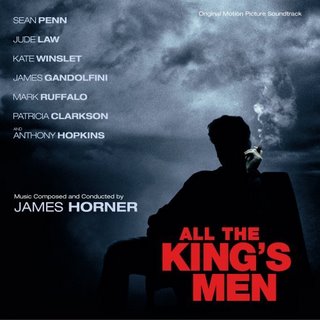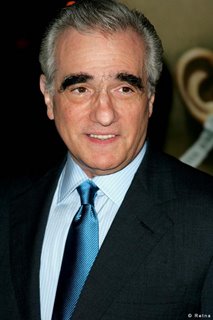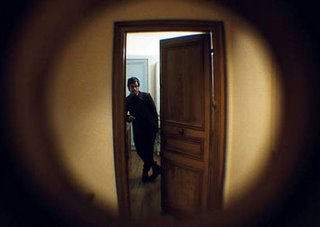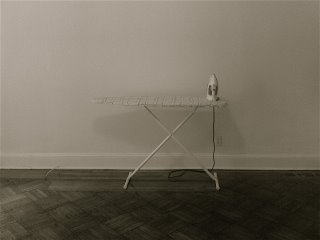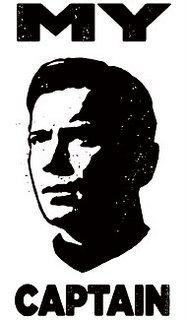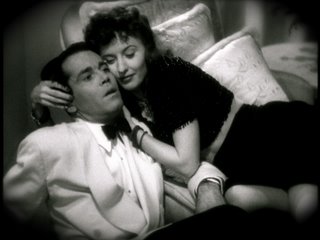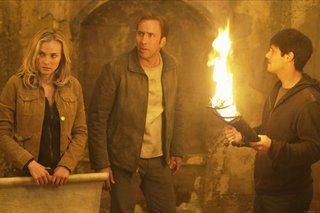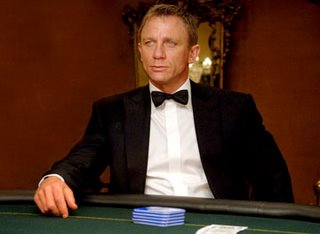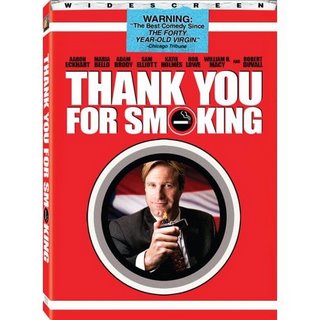A Guide to Recognizing Your Saints

It's a Hollywood staple: the bored teenager, burdened with dreams of wanderlust to leave his tiny, stifling town and make it big in New York City. In A Guide to Recognizing Your Saints the protagonist is already in New York City (Astoria, Queens to be specific) and he, conversely, dreams only of getting as far away as possible.
A Guide to Recognizing Your Saints is based on the real-life experiences of its director, Dito Montiel, played in this film adaptation of his book by the same name by two actors, Shia LaBeouf (circa 1986) and Robert Downey Jr. (circa 2005). In the opening moments of the film, LaBeouf looks at the camera, through the screen and directly at the audience and says, with a mixture of sober inevitability and profound sadness, "My name is Dito and I'm going to leave everyone in this film."
Saints begins in the present with Dito, a successful California author getting a phone call telling him that his father is dying and to return home immediately. Though we first see Downey as Dito, this is not his movie. It's LaBeouf's. The past and the present are weaved together in such a way that their emotional beats play off one another. However, the present-day material is stretched too thin and verges on becoming little more than a framing story, not invested with nearly enough meat to really validate its existence other than the fact that, without it, there could be no forgiveness, no redemption. For while most films of this type--protagonist escaping the clutches of a rough childhood to make something of himself elsewhere--treat the escape as a heroic act, the family and friends Dito left behind for nearly 20 years look at it only as cowardice and betrayal.
In many ways we've seen this film before. Were it not for the deeply personal nature of Saints, the film, however praiseworthy it might be, would do little more than retread territory forged by films like Mean Streets or The Lords of Flatbush. But it is its very autobiographical roots that make Saints an emotional wallop, a raw, authentic work that is, at its defiant core, violently and unrestrainedly alive.
Dito lives in a rough part of Queens. He runs with friends his mother (Dianne Wiest) dubs "a pack of wolves." They are rowdy, anti-social, brimming with false bravado and bursting at the seams with ungratified sexual tension. They're led by hot-head Antonio (relative newcomer Channing Tatum) who is regularly beaten to a bloody pulp by his father and takes out his aggressions on whomever is unlucky enough to get in his way. Yes, Queens is hell and Dito runs with demons, but he stays because hell is all he knows and these demons are the only friends he has. But all that is about the change. Dito is different. He has dreams and ambitions beyond home.
Together, they strut through the streets, sweltering in the summer heat, looking for girls and trouble. The girls they find. The trouble invariably finds them. Neighborhood turf wars escalate and Dito is caught in the middle. Try as he might to explain the state of the streets to his father, Monty (Chazz Palminteri) he can never seem to break through. (What's worse, Monty seems to favor Antonio over his own flesh and blood, perhaps seeing more of himself there. Antonio, his family situation being what it is, is only too happy to return his love in a way that Dito can't.) "You're not going anywhere," Monty tells Dito, but what he means is, "please don't ever leave me." His fierce overprotectiveness and inability to see the situation for what it is drives his son further and further away.
Dito can only lose himself in the eyes and skirts of his girlfriend (Melonie Diaz) for so long before the streets threaten to consume him. Ultimately, after a night of violence with terrible consequences, Dito decides it's now or never. Without saying goodbye, or looking back, he abandons everyone and everything he knows.
At Sundance, Saints won the dramatic-directing prize as well as a special award for its ensemble acting. If it doesn't seem that anyone's acting stands out, that's because everyone here is outstanding. Downey, who knows something about falls from grace, is marvelous to watch, small though his scenes are. Rosario Dawson who plays Dito's girlfriend all grown up is in only two scenes but owns them both. Chazz Palminteri thunders and pleads, Shia LaBeouf slowly unravels, but it is Channing Tatum who will be remembered. With his raw physicality and shirtless torso, the comparisons to a young Brando are inevitable. Equal parts charisma and monstrosity, his performance is electrifying.
For a first-time director, Montiel does an admirable job of giving his film the same feeling of kinetic mayhem as his life--jump cuts, beats of blackness, repeated lines, interior monologues and even snatches of dialogue printed on screen as if they were transcribed directly from the shooting script--make for a maddening cacophony. It doesn't always work and sometimes it's downright distracting, but despite this and the fact that Montiel seems to break every rule of narrative structure and storytelling convention taught in film school, Saints works despite anyway. It is the passion poured into the work that allows Saints to rise above its missteps and resonate like a pressure in our chests.
Saints is not a nostalgia-drenched walk down memory lane. This is not a story about waywardness turned to good by the straight and narrow. 1986 Bronx is doubtless a place both character Dito and director Dito were better to have escaped. And yet at what price? Unclouded by illusions of sentiment, Saints possesses a wisdom that is only granted by navigating the crucible.
When it concludes, it is not to melodrama. Deep cutting wounds spanning decades do not heal in five minutes as some Hollywood films would like us to believe, and as such, though the film allows us to glimpse the ignition of a catharsis, we are not allowed to see it play out. The film ends, perhaps before we're ready for it to, denying us what's not for us to see. It is enough that forgiveness, against all odds, has wormed its way into this hell and may yet, redeem both the demons that left and those that were never able to escape.


